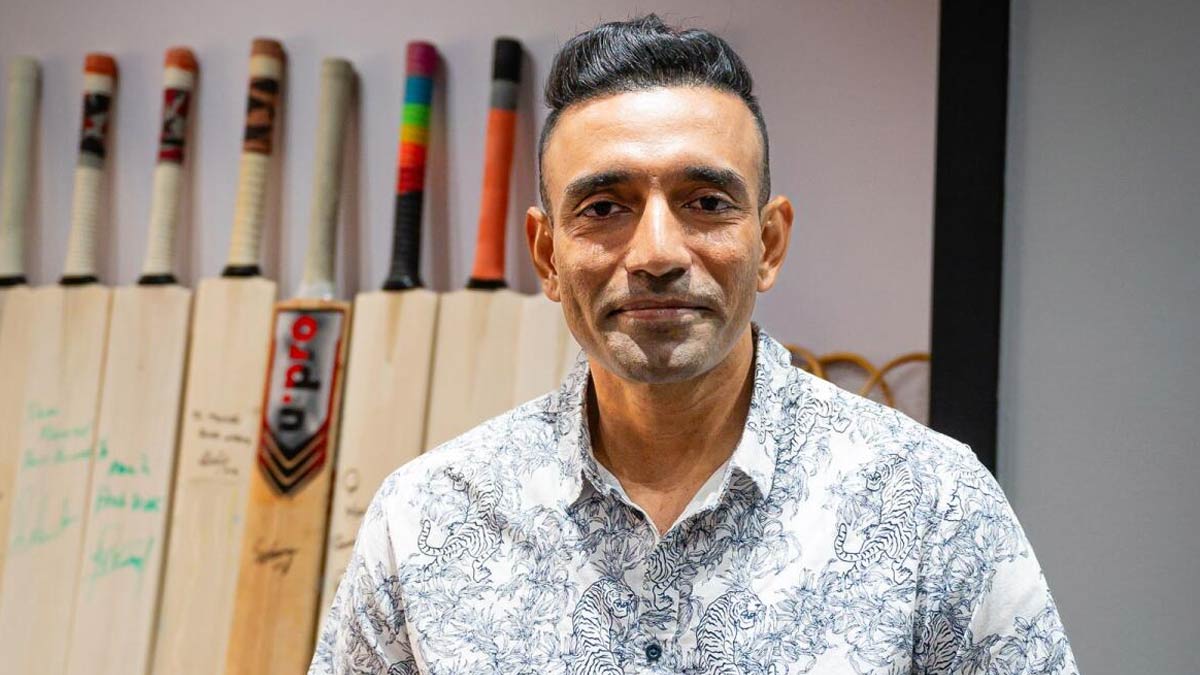
Robin Uthappa, the former Indian wicketkeeper-batter, recently opened up about his battle with clinical depression, shedding light on a deeply personal and often stigmatized issue that affects many, including athletes. His story serves as a reminder that even those who appear strong and resilient can face immense internal challenges. Uthappa's candid revelation brings attention to the importance of mental health awareness, especially in the high-pressure world of professional sports.
Table of Content:-
The Weight of Clinical Depression
In a heartfelt statement, Uthappa reflected on his experience with clinical depression, describing it as a “debilitating, exhausting, and heavy” journey. He emphasized that the struggle is not just about feeling sad or down; it is a pervasive sense of burden that affects every aspect of one's life. The 38-year-old cricketer shared that he first encountered clinical depression in 2011, but at the time, he was unaware of what he was going through. He recalled feeling disconnected from himself, with an overwhelming sense that something was wrong, even though he couldn’t pinpoint what it was.
Uthappa’s story resonates with many who have faced similar struggles, highlighting the often invisible nature of mental health issues. His description of depression as a “burdensome existence” is a powerful reminder of how isolating and consuming the condition can be.
View this post on Instagram
Recognizing the Signs and Seeking Help
One of the key messages Uthappa conveyed is the importance of recognizing the signs of depression and seeking help. He stressed that the first step in overcoming this challenge is to acknowledge that something is wrong. Denial, he warned, only deepens the struggle, making it harder to pull oneself out of the “hole” that depression creates.
Also Read: Nargis Fakhri Focuses On Muscle Building With A Kettlebell Workout; Here’s Why You Should Do It Too
Uthappa’s advice is crucial for anyone experiencing mental health issues: acknowledging the problem is the first and most important step toward recovery. He suggested that writing down one’s thoughts and feelings can be a helpful way to gain insight into what might be wrong, as it was for him. This self-reflection can be the beginning of a journey toward healing, providing a way to articulate feelings that might otherwise remain buried.

The Hidden Battle of Athletes
The pressures of professional sports are immense, and the toll they can take on an athlete’s mental health is often underestimated. Uthappa’s decision to share his battle with clinical depression and suicidal thoughts is particularly significant in the context of sports, where there is often a cultural expectation of toughness and resilience. By speaking out, he challenges the stigma surrounding mental health in athletics, encouraging others to seek help and support.
Also Read: Get Fit Like Blake Lively: Unveiling the Workout Secrets of the It Ends With Us Star
Uthappa also mentioned the tragic stories of other cricketers, such as Graham Thorpe, who have lost their lives to depression. These stories underscore the importance of addressing mental health issues before they reach a crisis point. Uthappa’s openness about his own struggles serves as a beacon of hope for others in similar situations, showing that it is possible to emerge from the darkness with the right support and treatment.
View this post on Instagram
Understanding Clinical Depression
Clinical depression, also known as major depressive disorder, is a severe form of depression that goes beyond temporary sadness or grief. It is a persistent condition that can affect a person’s thoughts, feelings, behaviour, and physical health. The symptoms of clinical depression can be profound and may include feelings of hopelessness, irritability, loss of interest in activities, changes in sleep and appetite, fatigue, and thoughts of death or suicide.
The severity of these symptoms can disrupt daily life, making it difficult to function at work, maintain relationships, or engage in social activities. However, clinical depression is treatable, and with proper intervention, individuals can recover and lead fulfilling lives. Treatment often involves a combination of psychotherapy, medication, and lifestyle changes, tailored to the individual's needs.
View this post on Instagram
Breaking the Silence
Robin Uthappa’s story is not just a testament to his personal resilience, but also a call to action for greater awareness and understanding of mental health issues. By breaking the silence around his struggle with clinical depression, Uthappa is helping to destigmatize mental health challenges, making it easier for others to seek the help they need.
His message is clear: no one should have to face depression alone, and there is always a way out, even when it feels impossible. For those who are struggling, Uthappa’s story is a reminder that help is available, and that acknowledging the problem is the first step toward healing. In sharing his journey, Uthappa offers hope and inspiration to others, encouraging them to find their way back to health and happiness.
Also watch this video
How we keep this article up to date:
We work with experts and keep a close eye on the latest in health and wellness. Whenever there is a new research or helpful information, we update our articles with accurate and useful advice.
Current Version
